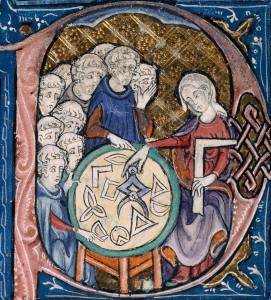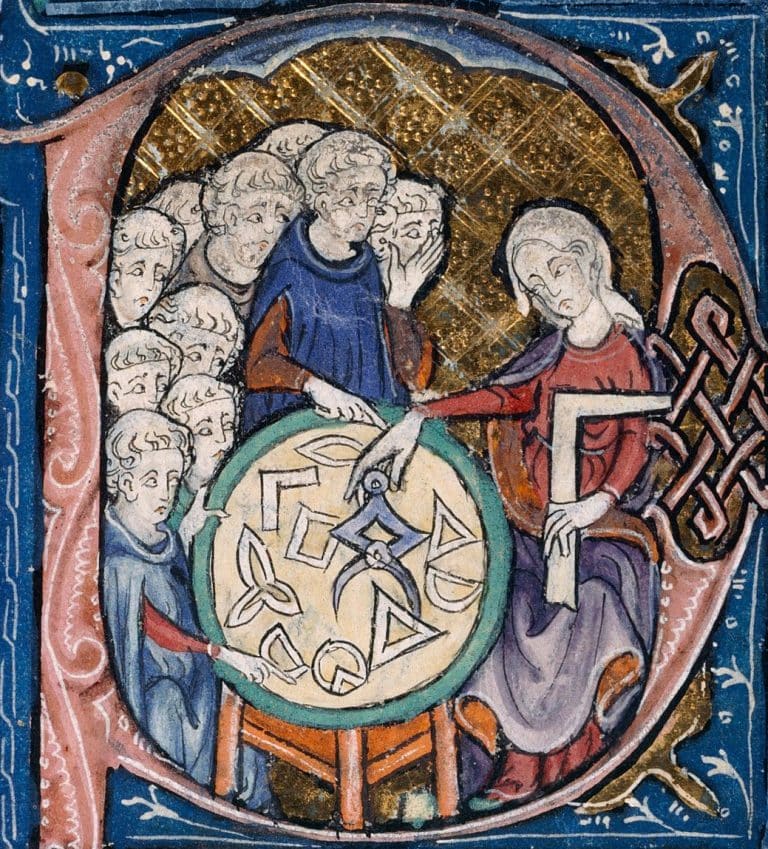This is a painfully typical “Women should be mothers/mothering” message.  A fair attempt has been made to include childless women by quoting Barbara Thompson’s personal interpretation of the family proclamation… but even though she briefly addresses that “even if I were the only living member of my family, I am still a member of God’s family”, there is no elaboration or sense of security about our place as children of Heavenly Parents. Rather, it is focused on mortal family relationships. As a result, the message is void of reprieve for those of us with estranged or volatile, “earthly” family relationships, and for those of us who are childless, we are encouraged to stick our noses into other people’s lives to “strengthen other families”…. a thing that, in my experience with most church members, is extremely unwelcome.
A fair attempt has been made to include childless women by quoting Barbara Thompson’s personal interpretation of the family proclamation… but even though she briefly addresses that “even if I were the only living member of my family, I am still a member of God’s family”, there is no elaboration or sense of security about our place as children of Heavenly Parents. Rather, it is focused on mortal family relationships. As a result, the message is void of reprieve for those of us with estranged or volatile, “earthly” family relationships, and for those of us who are childless, we are encouraged to stick our noses into other people’s lives to “strengthen other families”…. a thing that, in my experience with most church members, is extremely unwelcome.
So… where does that leave those of us who are motherless, childless or just plain tired of being lectured about motherhood and wifedom? Well, let’s flip to the history section:
“When Sister Bathsheba W. Smith served as the fourth Relief Society general president [from 1901 to 1910], she saw a need to strengthen families, and so she established mother education lessons for Relief Society sisters. The lessons included counsel on marriage, prenatal care, and child rearing.”
What is important to note in this period, yet absent in this month’s Visiting Teaching message is that the educational programs created by Ms. Smith were not limited to marital and maternal classes:[1] “There is nothing good,” said Smith, “which is suitable for woman’s work that cannot be properly brought into Relief Society. The study of the best literature, sciences, nature, cooking, in fact the whole field of domestic science, child study, home making, house furnishing, [as well as] Ethics, Civics, Patriotism, Morals, Manners, the Gospel, the Virtues,– all, all and kindred subjects are within the scope of Relief Society.”
So yes, this message is titled “Guardians of the Hearth”, but in understanding the extended scope of Ms. Smith’s plan, the aim is in giving women education so that they have a voice. Indeed, “ye cannot be saved in ignorance” became a common Relief Society catchphrase during this time.[2]
This Visiting Teaching message can be interpreted as an invitation to follow Ms. Smith’s desired legacy by investing and expanding in knowledge and experience. The “hearth” is literally a fireplace—so what lights a fire in the hearts of the women you visit teach? Is it the study of child development (even if they don’t have children)? Or scrapbooking? Or politics? Or power-lifting? Don’t judge. Encourage. Same goes for women interested in veganism, scripture study, literature, quilting, film, government, motorcycles and… even women who are anxious and seeking to improve their family relationships. Consider this quote by Camilla Eyring Kimball:
“Though at the time I did not often think of my learning as a religious activity, it clearly was, in the sense that I came to value the inherent goodness in people, to appreciate the world around me, to see the fruits of unselfish cooperation, to increase my sense of self-worth, and to feel I had a capacity to be of service to others.”[3]
In encouraging the women you visit teach to seek opportunities for improvement, Kimball reminds us that self-worth is increased. This individual self worth is important so we do not mistake ourselves as slaves who are indentured to children, men, relationships, callings, or otherwise. In recognising our eternal value by engaging and encouraging each other to seek edification and increased knowledge, we are better able to “see the fruits of unselfish cooperation.” This is something each of us can apply in our lives—friends, daughters, sisters, wives, mothers, —all of us can improve our relationships, our hearts and our minds in seeking edification through study of the things we love.
So yes, the stock visiting teaching message is problematic and limited because its scope does not take into consideration the growing number women with painful family situations. But when we think about the historical context of Ms. Smith’s scope for the Relief Society education program, and encourage the women we visit teach to develop their minds in a manner that increases their self-worth, we can better position women as guardians of infinitely valuable hearts and hearths.
As Emmeline B. Wells once said, “I believe in women, especially thinking women.”[4]
How can you encourage the women you visit teach to find joy and improved self-worth in obtaining further light and knowledge?
*The included image is called Woman Teaching Geometry. It is French and its estimated date is 1309-1316. The very rare rendition of a woman teaching men is especially unusual because the men appear to be monks. She is most likely the personification of Geometry, based on Martianus Capella’s De Nuptiis Philologiae et Mercurii, [5th c.].






24 Responses
Ah, Spunky, I just sat down to write visiting teaching notes for February (I have a letter route) and decided to see what was happening on Exponent today first. Perfect timing (serendipitous, to be sure). I was struggling to know what to say about this message. I have to confess that when I saw the title, my first thought was of my stone fireplace and the great fire we had in it last weekend and how I have marshmallow-roasting down to near perfection. I’m afraid that’s the extent of my hearth-tending skills.
Thank you for finding another line of thought in this message. I like the idea of encouraging the sisters to develop all of their talents, wherever they may lie.
Thank you, as always, for commenting, CatherineWO. I was a bit worried that I didn’t take a “we can all parent someone in some way” route with this, but rationalised that I can do that another day.
The history section was the only thing I could use for this, because even the context of the scriptures associated with this message put me off. I thought the selected scriptures were all very narrow because each were written in reagrd to the relationshop of parents and dependant children. There was a slight difference in Alma 56:46-48, which is the over-quoted “they (Helaman’s stripling warriors) had been taught by their mothers, that if they did not doubt, God would deliver them.” It is nice that the selected verses start with Helaman calling the stripling warriors his “sons.” I suspect that this, compiled with Thompson’s quote is to remind primary, sunday school and youth teachers that in these callings, maternal influence can be used. But as someone who often teaches inactive women, I do not believe that reminding of maternal obligation would invoke the spirit, unless I knew the women very well. Plus, there are studies that show that women who have obtained university educations are more patient and better skilled as parents, so I would have been remiss if I didn’t embrance the idea of women and education.
So- there’s my soap box. 🙂
How are the women you VT? Do they respond to the letters? I have had a postive relationship with the women I letter-VT, so wonder if that is almost more beneficial than the in-person visits in some cases.
Two of the four women on my letter route were on my regular visiting route a few years ago, so I have had an “in-person” relationship with them in the past. Neither one attends church at all, but I have received responses from them to my letters. One of them even calls me once in awhile just to talk and she sent me the nicest Christmas card with a lengthy letter. I am unable to go into homes because of my chemical sensitivity, so writing letters solves that problem, but I also think I have a better, and more personal, relationship with these sisters through letters than I would with monthly visits.
I had a similar situation with my last VT assignment, a woman who would not have visitors, so I just posted the message letters to her. I was told she had a bakery for years but had a type of stroke or something that pretty well incapacitated her, insomuch that she couldn’t even speak clearly and therefore didn’t like the phone, and struggled to write. I was told she could not bake or do much of anything anymore. At Christmas, she had a family member deliver a box of handmade passionfruit shortbread cookies dipped in chocolate that she made herself; because she “no longer baked” and because this was one of her signature creations, I could only put it down to the letters sent. So glad I did that. What a beautiful treat from a beautiful soul. The letter writing makes a difference. I am sure of it.
I love this, Spunky! Especially the statement you included from Camilla Eyring Kimball. This is what I will reference from now on when I encounter anti-intellectualism in members. This is exactly how I feel, why I believe it’s important for us to study and learn things about cultures and religions besides our own. I love this sentiment so much.
Also, I hate the “everyone can mother even if they’re not mothers” stuff, I just do. I can’t read Barbara Thompson’s quote in that intro without thinking that it sounds totally contrived- like she knew that that’s what a lot of us would be thinking and wanted to make sure we knew we weren’t exempt. I’m not a mother. I love children and I take care of them a lot. I’m a very compassionate person and I think taking care of others is wonderful and important. But nurturing and caring for others is not the same as being a mother, and by obsessing over how non-mothers can actually be mothers, they say to me that womanhood can’t be valued without motherhood. I don’t think that’s true.
LOVE your comment, Miri! I agree with you every whit– I am so over womanhood being synonymous with motherhood. I don’t think God loves childless women or women who struggle with motherhood any less than He/She loves natural mothers. And I love Camilla’s quote as well. I have read a bit of her work lately; I really like her.
You asked, “How can you encourage the women you visit teach to find joy and improved self-worth in obtaining further light and knowledge?” I think one answer is to meet them where they are–spiritually, emotionally, and mentally. For example, some women may enjoy crafting or cooking; in that case, encourage them to continue seeking further light and knowledge in that arena–maybe inform them of a continuing ed class that fits their interest. Or have them teach you a favorite craft (for me, this would be an example of “sacrifice brings blessings!”). This would help them feel respected and cared for. If a visiting teachee is trying to return to school, help her by watching her kids while she studies, offer to study with her, or bring her non-traditional student care packages.
Put me down as one more who loves the Camilla Kimball quote. I, too, have a v.t. letter route (due to my social anxiety and crazy-busy schedule), and I will definitely include this quote, as a way to encourage my visiting teachees “to find joy and improved self-worth.” Thanks!
Thank you, Erin! What a clever idea to ask them to teach you something! I wish I had thought of that! It is just as you say, something that “would help them feel respected and cared for”… that is just brilliant, and you are right– asking others to teach us the things that they do easily and skillfully (or at least appear to) is an important way to build lasting relationships. Thank you for adding this very important esteem-building concept!!
Oh, hallelujah. I love the hearth-as-fireplace switch you invoke here. And I LOVE Bathsheba W. Smith’s education drive — but then, I love a lot of things about the social reform movement.
Mee too, Libby, me too. 🙂
Spunky, you are brilliant! I’m not a mother and am really tired of hearing about motherhood. Of course motherhood is important. So are other things. Let’s talk about them!
I really love the idea you had to find what each woman is passionate about, and using that as a jumping off point, and using their passion to explre self-improvement. That makes so much more sense then telling people what they should be improving in their lives. It’s depressing and irritating to be told what we’re supposed to be good at, especcially when we are excited about things we are good at. This is an awesome interpretation of guarding the hearth!
Thanks, DefyGravity! I am equally buggered with the eternal motherhood reminders. (can I say buggered on here?) Rock your dreams!! xx
Since I don’t currently fit into the “mother” category I would hope my visiting teachers would not feel anxious about sharing this type of message with me, but I’m glad I came across your post to gain perspective on what other people might be feeling in that type of situation. But even if someone did come to deliver an “everyone can mother even if they’re not mothers” or “women should be mothers” type of message it wouldn’t bother me because I believe there is MUCH more to being a “mother” (or life-creator) than we suppose.
If we allow ourselves to go deeper into the meaning of what it means to be a mother (even beyond this life and into the eternities) it seems that every woman would be benefitted by learning how to give life to someone (or something) and make it grow, even if it’s not a human child, because that’s what seems to be the essence of femininity. For instance, is not the purpose of this blog to “plant” ideas into the hearts and minds of others and nurture those ideas to fruition, that they eventually produce some sort of desired result? If that is the case, then are we not all “mothers” in this regard, and wouldn’t this message pertain to everyone (men and children included)? These of course are merely my own thoughts, and I do understand that this is not a commonly-held point of view as the typical concept of a mother is a woman who has children.
By the way, am I mistaken, or is the woman in that beautiful 14th-century image holding a compass and a square in each hand? Interesting.
Hi Darlene,
Thanks for commenting! I respect and admire your ability to embrace the concept of motherhood more broadly. I agree with you that the term mother is ill defined when limited to mortal child rearing, but motherhood is a complicated and sensitive subject; not all women who are childless are in a place to readily welcome something that may feel second-rate.
I don’t think I would respond particularly well if someone labeled me as a mother for writing at the Exponent. I love the idea, but I am not sure it fits me. I do find it an immense privilege to be a part of this blog, but I would prefer being called a peer, I think, because I learn so much from the other writers and commenters… and again I am awash in thoughts of enrichment and education. That’s my soapbox and I’m stickin’ to it for now 🙂
And yes… the artwork is inclusive of a compass and square! I am so pleased you noticed!
There’s nothing wrong with soapboxes! 🙂 I really enjoyed your article and thanks to your response, I think I finally understand the meaning of The Exponent’s tagline! The lights are coming on!! lol
love this, Spunky! So very well done. I wish the messages in the Ensign were more in keeping with what you’ve done here.
What would we do without modern-day scribes to interpret inspired counsel for us? Goodness only knows we would never have gotten beyond the lesser things — like parenting — and onto the greater things — like secular knowledge.
“What would we do without modern-day scribes to interpret inspired counsel for us?”
Snarkiness aside, everyone is a modern-day scribe–the missionaries, the Gospel Doctrine teachers, the nursery leaders, writers of blogs, and you, Jack. Anyone who is trying to fit the inspired counsel into their lives and help others fit it in their lives. Welcome to the club–there are lots of us here!
Well said, Erin 🙂
I liked your article and the things you had to say.
This past Sunday I was asked to be the Singles Rep for my ward. Although I am in the midsingles category and have a lot going for me (I sometimes think anyway) I was told that this would be my perfect third calling because I am not marriage material anymore so I’ll be able to be in it for a long while.
For a little while I struggled with this especially after returning home and reading the VT message for the month. But I don’t so much anymore and part of that was this article.
This is my first time posting, so sorry if my rambling makes no sense.
Snappy Peas,
Thank you for your comment! Please feel free to comment here, your thoughts and words are welcome.
What a shocking and offensive thing for someone to say to you about a new calling! Was it meant to be a joke? Ugh. I am sure that you know better than they do of your glorious, passionate, potential in this life and the next… so, feel free to ignore such outwardly unkind and frankly, stupid comments from people who have no claim to revelation for you in the least.
I look forward to hearing more comments from you (plus, I love fresh, snappy peas! yum! seeing your clever moniker made me feel happy!)
I just had to let you know that your thoughtful words are getting around–my new VT used this article to teach me today, and it was wonderful!
Just wanted to thank you — I am the VT coordinator for our ward and have recently been asked to write something up for the bulletin board about the monthly message. This month’s is so icky, that I am grateful that I can come hear and pick up a broader perspective that will include all of the women in our ward.
Just wanted to thank you — I am the VT coordinator for our ward and have recently been asked to write something up for the bulletin board about the monthly message. This month’s is so icky, that I am grateful that I can come here and pick up a broader perspective that will include all of the women in our ward.